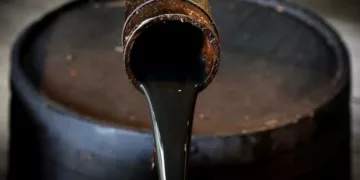Stakeholders in the manufacturing sectors have called on government to create a more enabling environment for local entrepreneurs to thrive.
They spoke at the official commissioning of LA Spring Bottled Water Ltd in Karu, Abuja, over the weekend.
Speaking, the stakeholders lamented issues such as unstable electricity, high production costs, insecurity, and excessive taxation as major barriers facing small and medium-scale manufacturers in Nigeria.
The manager of the factory, Titus Jeremiah, highlighted the factory’s high standards and commitment to safe drinking water. “Our water is clean, colorless, odorless, and thoroughly filtered. The regulatory authorities have come, assessed our machines and our process, and found that we meet the required standards. They didn’t find anything bad,” he said.
Jeremiah also assured customers of consistent quality even beyond the launch. “We don’t intend to drop our standards after today. We’re committed to maintaining quality and ensuring that every bottle that leaves this facility meets the expectations of consumers. The whole idea is to ensure people have access to safe and affordable drinking water, and that’s a responsibility we take seriously,” he said.
Earlier, one of the speakers at the launch, Tom Takpatore, expressed both admiration for the quality of the facility and concern over the tough realities businesses face in the country.
“We just had a tour of LA Spring Water’s production plant and we were highly impressed. The setup looks simple, but it is clear that a lot of money, professionalism, and care went into putting this together. You can see the commitment to hygiene and safety, which makes this water very much safe for human consumption,” he said.
However, Takpatore noted that the challenges facing manufacturers are enormous, especially with erratic power supply. “As we were going through the facility, the electricity went off. This is a business that solar power can’t sustain because the machines consume a lot. We need a reliable power supply. Also, if there was an enabling economic environment, perhaps we could even produce these machines locally,” he added.
He emphasised that factors such as security and affordable logistics are critical to expanding such businesses to other parts of Nigeria.
On his part, Barrister Bassey Offiong, commended the founders of the factory for their bold step in venturing into manufacturing. “This is what we need in Nigeria to move forward. Everybody talks about moving from consumption to production. This is what production looks like.
“It takes a lion’s heart to go into this kind of business. Most people would rather invest in real estate or hospitality where returns are quicker. But production is what truly grows the economy.”
Offiong stressed the importance of reducing the cost of doing business for local manufacturers. “You saw how the power went out during our tour. That means extra cost to run generators. In the end, this cost is passed to the consumer, making local products more expensive than imports. If the water were imported from China, it might even be cheaper, and that is a shame,” he said.
Speaking on recent tax policies, Offiong warned against stifling new businesses with excessive levies. “In developed countries, factories like this get tax exemptions for up to five years so they can stabilize. But here, barely six months in, local and state tax agents will start knocking. This is not right. Multiple taxation must stop. The government should allow small businesses to breathe and grow,” he added.










